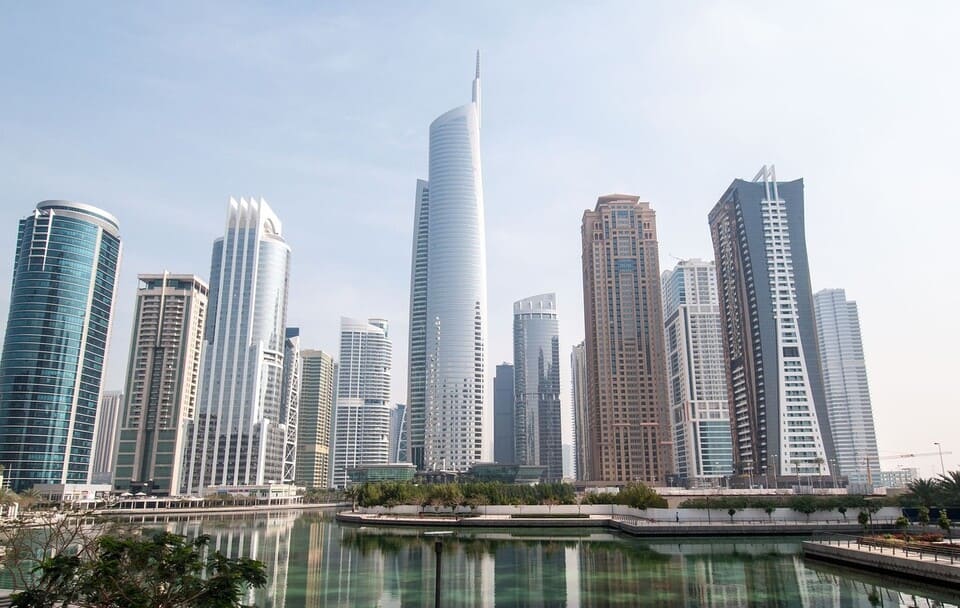
Translate Portuguese to Arabic - Quote for Certified Arabic Translation
In an increasingly interconnected global landscape, the demand for accurate language translation has witnessed an unprecedented surge, particularly in the dynamic interplay between Arabic and Portuguese. This phenomenon is propelled by a tapestry of factors ranging from economic collaborations and cross-cultural exchanges to international diplomacy. As the demand for effective communication intensifies, the need for proficient translations between these languages becomes paramount.
In this exploration, we delve into the root causes behind this surge, shed light on the most sought-after types of Portuguese to Arabic translations, unravel the intricate art of translating for typesetting and desktop publishing, unveil the optimal choice for translating Portuguese to Arabic, and guide you through the seamless process of requesting a free quote for certified Arabic and Portuguese translation services provided by the reputable international translation company - PoliLingua.
The Surge in Demand for Portuguese and Arabic Translation
The global landscape is witnessing an unprecedented surge in demand for certified translations between Arabic and Portuguese. Several factors contribute to this increasing trend.
- Translation for Economic Opportunities - The Portuguese-speaking countries and the Arab world have been increasingly engaging in economic collaborations and partnerships. As business relationships grow stronger, the need for accurate and reliable translations becomes paramount. Whether it's contracts, financial reports, or business communications, precise translation is essential to facilitate seamless transactions.
- Tourism and Hospitality Translation - Tourism serves as a bridge between cultures, and both Portuguese-speaking countries and Arabic-speaking regions are attractive tourist destinations. Travelers seeking information in their native languages expect tourism materials, hotel guides, and travel brochures to be available in a language they understand. PoliLingua's translation services cater to this need, providing a gateway for travelers to explore these captivating regions.
- Translation for International Relations - In an era of global diplomacy, diplomatic correspondence, treaties, and agreements must be translated accurately to maintain transparency and clarity. The Arab world and Portuguese-speaking countries are not exempt from the need to communicate effectively on the international stage. PoliLingua plays a pivotal role in ensuring that such communications are accurately conveyed in both languages.
- Education and Research Translation - The exchange of knowledge between academic institutions, research centers, and universities across language barriers requires impeccable translation services. Students, researchers, and academics benefit from well-translated academic papers, research findings, and educational materials that contribute to the enrichment of both linguistic and cultural understanding.
- Translation for Immigration - There are growing communities of Arabic-speaking immigrants in Portuguese-speaking countries and Portuguese-speaking immigrants in Arabic-speaking countries, creating a need for translations of official documents such as legal and medical documents.
Most Demanded Types of Portuguese to Arabic Translations
In our increasingly interconnected world, the need for accurate and effective translation services has reached new heights. One particularly intriguing linguistic journey is from Portuguese to Arabic, two languages that boast rich histories and vibrant cultures. The demand for Portuguese to Arabic translations spans a wide array of domains, catering to diverse needs and industries. In this exploration, we delve into the most demanded types of Portuguese to Arabic translations, shedding light on the significance of each domain and the impact it has on global communication.
- Translation for Business and Commerce - As economies become more globalized, businesses are seeking opportunities beyond their borders. This expansion often involves communicating with partners, clients, and customers who speak different languages. Portuguese-speaking businesses venturing into Arab markets, and vice versa, require translations for business contracts, agreements, financial reports, marketing materials, and correspondence. Accurate translation in the business realm is essential to ensure that terms, conditions, and intentions are conveyed, minimizing misunderstandings and facilitating successful collaborations.
- Hospitality and Tourism Translation - Tourism serves as a cultural bridge, connecting people from diverse backgrounds. When it comes to Portuguese-speaking countries attracting Arab tourists and vice versa, effective tourism translation plays a pivotal role. Travel guides, brochures, hotel information, and tourist materials need to be accurately translated to cater to the needs of travelers. This enhances the overall experience, fosters cultural exchange, and helps tourists navigate and enjoy their destinations more effectively.
- Translation for Legal Documents and Contracts - The legal domain demands precision and accuracy, regardless of the languages involved. Portuguese to Arabic translation services are frequently sought for legal documents such as contracts, agreements, patents, intellectual property documents, and court transcripts. Any discrepancies or misinterpretations in legal translations can have severe consequences, making it imperative to work with professionals who understand legal terminology and cultural context.
- Healthcare and Medical Document Translation - The medical and healthcare sector is another area where translations can be a matter of life and death. Translating medical reports, prescriptions, patient records, and research findings requires not only linguistic proficiency but also a deep understanding of medical terminology. Clear communication is vital to ensuring patients receive appropriate care and that medical professionals can collaborate effectively.
- Translation for Technical Manuals and Instructions - In today's technologically advanced world, accurate technical communication is crucial. Translating technical documents, such as user manuals, technical specifications, and instructions for consumer products or industrial machinery is a demanding task. The translation needs to be precise to prevent misunderstandings or misuse of the product, ensuring the safety and satisfaction of end-users.
- Educational Materials and Academic Translation - In the realm of education and research, accurate translation is essential for sharing knowledge across language barriers. Academic papers, research findings, textbooks, and educational materials require translations that not only convey the content accurately but also maintain the original academic rigor and intent.
Translate Portuguese to Arabic for Typesetting and Desktop Publishing
Typesetting and desktop publishing are important steps in the translation process, particularly when translating between languages with different writing systems such as Portuguese and Arabic. Here are some considerations for typesetting and desktop publishing for Portuguese translations to Arabic.
- Font selection - Arabic script is a complex and intricate writing system, so it's important to choose a font that is designed specifically for Arabic. The font should be clear and easy to read, with well-defined characters that are distinct from one another.
- Text direction - Arabic is written from right to left, which means that typesetting and desktop publishing software need to be configured to handle this direction. This can involve changing the page layout, adjusting margins, and configuring software settings to ensure that text flows correctly.
- Text alignment - Arabic text is often aligned to the right-hand side of the page, which can be different from the left-aligned text used in Portuguese. Typesetting and desktop publishing software should allow for text alignment adjustments to ensure that the final document looks polished and professional.
- Typesetting conventions - Arabic script has its typesetting conventions, such as the use of ligatures and diacritical marks. It's important to ensure that these conventions are followed correctly during the typesetting process.
- Quality control - Once the typesetting and desktop publishing process is complete, it's important to review the final document carefully to ensure that there are no errors or formatting issues. This may involve a final proofreading pass or the use of specialized software tools to check for formatting issues.
Typesetting and desktop publishing for Portuguese translations to Arabic requires careful attention to detail and a thorough understanding of the nuances of both languages. It's important to work with an experienced provider who can ensure that the final document is accurate, polished, and professional-looking.
Arabic Portuguese Interpreting in the World Communications
Arabic and Portuguese, hailing from different language families, possess intricate linguistic structures and cultural nuances that require a deft hand in interpretation. In a world where international relations, business ventures, and academic exchanges know no boundaries, the demand for skilled interpreters to facilitate Arabic-Portuguese communications has surged.
PoliLingua's team of expert interpreters possesses a profound command of both languages, coupled with a deep understanding of the cultures they represent. This dual expertise ensures that not only the words but also the intended meanings, emotions, and cultural contexts are accurately conveyed during interactions.
Their commitment to excellence, cultural sensitivity, and linguistic mastery position them as a trusted partner in overcoming language barriers. Through their expert interpreting services, they enable meaningful exchanges that transcend linguistic divides, creating pathways for diplomacy, commerce, education, and cultural enrichment. As the world continues to evolve, interpreters play a pivotal role in shaping a more connected and harmonious global community.
The best option to translate Portuguese to Arabic
There are several options available for translating Portuguese to Arabic, and the best option will depend on the specific needs of the project. Here are some options to consider.
- Freelance translators - Freelance translators can also provide quality translations, often at a lower cost than a translation agency. It's important to find a freelance translator with experience and expertise in translating between Portuguese and Arabic.
- Translation software - Translation software such as Google Translate can be a useful tool for quickly translating small amounts of text. However, it's important to note that automated translation can often be inaccurate and may not take into account cultural nuances.
- Bilingual employees - If a company has bilingual employees who are fluent in Portuguese and Arabic, they may be able to provide translations in-house. However, it's important to ensure that the employee has the necessary translation skills and experience.
- Professional translation agency - Hiring a professional translation agency can ensure high-quality translations that are accurate and culturally appropriate. A translation agency can provide access to a team of experienced translators who specialize in translating Portuguese to Arabic.
The best option for translating Portuguese to Arabic will depend on factors such as the volume of text, the level of accuracy required, and the budget for the project. It's important to choose a reputable provider with experience and expertise in translating between these languages.
Requesting a Free Quote for Certified Arabic-Portuguese Translation of PoliLingua
Obtaining a free quote for certified Arabic-Portuguese translation services from PoliLingua is a straightforward process that underscores the company's commitment to client convenience. Here's how you can get started:
- Visit the PoliLingua Website - Head to the official PoliLingua website, which serves as a hub of information and services related to translation.
- Navigate to the Quote Request Section - Locate the "Get a Quote" or similar section on the website. This is often prominently displayed to ensure easy access for visitors seeking translation services.
- Upload Your Document - Click on the designated area to upload the document you need translated from Arabic to Portuguese or vice versa. The document can encompass a range of categories, from legal contracts to medical reports, and marketing materials to academic papers.
- Fill Out the Request Form - In the provided form, enter essential details such as your contact information, the source and target languages (Arabic and Portuguese), the type of document, and any specific instructions or requirements you might have.
- Submit Your Request - Once you've filled out the form and uploaded your document, submit your request for a free quote. The information you provide will help PoliLingua assess the scope of the project and provide you with an accurate cost estimate.
- Receive Your Quote - PoliLingua's team will review your request and document, considering factors such as complexity, word count, and turnaround time. You will receive a detailed quote outlining the cost of the certified Arabic-Portuguese translation.
Have questions about the process, timelines, or special requirements? A call or an email is all it takes to connect with us. We're not just about translations; we're about building bridges between cultures and communication. So, leap and experience the power of precise, culturally resonant translations with PoliLingua. Your words deserve to shine, no matter the language.







